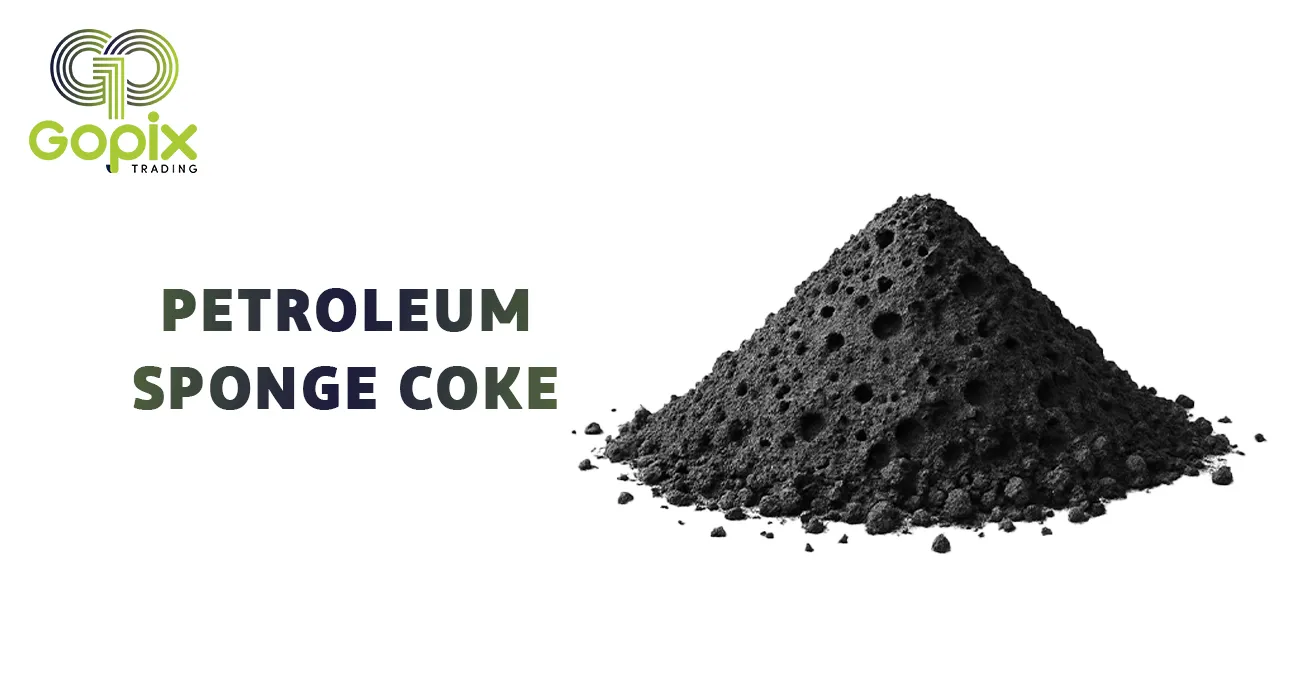Main headlines
- Home
- About Us
- المدونة
- Gold

Sponge Coke is a type of petroleum coke produced through the deep thermal cracking process (Delayed Coking) in oil refineries. It is characterized by being:
Named "Sponge Coke" because its surface is porous and resembles a sponge under a microscope. This porosity aids in thermal reactions within industrial furnaces.
| Property | Typical Value |
|---|---|
| Fixed Carbon | ≥ 85% |
| Sulfur | 0.5% – 6.5% (depending on the source) |
| Ash | ≤ 0.5% |
| Moisture | ≤ 0.5% |
| Form | Rough, irregular black pieces |
| True Density | 2.1 – 2.3 g/cm³ |
| Apparent density | 0.7 – 0.9 g/cm³ |
| Thermal Activity | Highly Reactive |
| Type | Form | Use |
|---|---|---|
| Sponge Coke | Spongy Porous | Aluminum and Metal Industries |
| Needle Coke | Granular/Needle | Graphite Electrode Industry |
| Shot Coke | Small Spheres | Industrial Fuel (Low Quality) |
| Honeycomb Coke | Regularly Porous | Limited Use |
| Form | Details |
|---|---|
| Bulk Shipping | Via open ships or containers |
| Jumbo Bags | 1 ton per bag |
| Barrels (Rare) | Only in test shipments |
Calcined Petroleum Coke (CPC) is a high-purity solid carbon product obtained by heating raw petroleum coke (Green Petroleum Coke) to high temperatures (approximately 1200 – 1400°C) in specialized furnaces to remove volatile materials and improve physical and chemical properties.
| Property | Typical Value |
|---|---|
| Fixed Carbon | ≥ 98.5% |
| Ash content | ≤ 0.5% |
| Sulfur | 0.5% – 3.0% (depending on the source) |
| Moisture | ≤ 0.5% |
| True Density | 2.03 – 2.10 g/cm³ |
| Apparent density | 0.80 – 0.95 g/cm³ |
| Form | Black pieces or granular powder |
| Thermal Activity | High |
| Electrical conductivity | Excellent (required in the electrode industry) |
| Item | Green Coke (Raw) | Calcined Coke (Calcined) |
|---|---|---|
| Carbon Content | 80 – 85% | ≥ 98.5% |
| Moisture | Relatively High | Almost Nonexistent |
| Volatile Materials | 10 – 20% | ≤ 0.5% |
| Direct use | No | Yes |
| Form | Use |
|---|---|
| Bulk Shipping | Via tankers or containers |
| Jumbo Bags | 1 ton per bag |
| Small Bags | For small factories or testing |
At Gopix Global Trading, we provide you with:
Request a Quote for Petroleum Coke (Sponge Coke or Calcined Petroleum Coke) Now:
Email: info@gopixtrade.com
WhatsApp: +966504275259
Gopix – Your Smart Partner in Industrial Carbon and Raw Materials Trade for Metals.